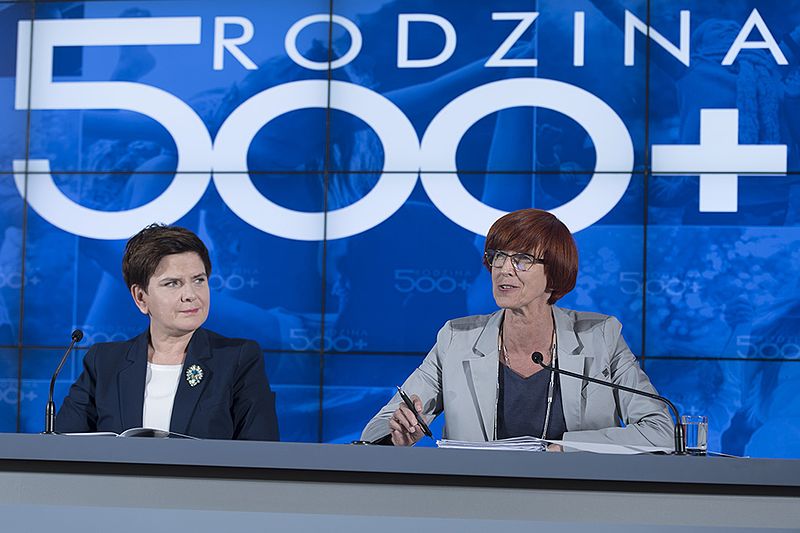Rafał Woś was invited by Krytyka Polityczna in order to present and reflect on Law and Justice’s (PiS) social policies. PiS had already governed Poland between 2005 and 2007. At that time they won the elections with a socially oriented solidaristic agenda, but nevertheless when being in power led quite liberal policies. After being re-elected in 2015, experts expected that the situation would be the same, but unexpectedly there were several social programs introduced by the government. Rafał Woś, who is a journalist and writer, confronted specific aspects of these programs and presented through a socio-economic and political lens.
The discussion started with a brief presentation on the situation in Poland during the years following the collapse of communism. This was a huge economic and political transformation. “In some areas, Poland made a huge step forward, but in some areas it did not, sometimes it even made a step back,” Woś said. There was a rather mediocre development of the community housing and labour. The economy was not developing in a fair, solidaristic way and that was obvious to the people. Moreover, after communism, the Polish dream to be an industrialised country slowly collapsed and the country underwent enormous austerity. “The politicians decided that the state had to shrink massively and fast,” Woś informed us. And the last part of the problem is that during the last 20 years there has been no public debate over the economy in Poland: “The neoliberal paradigm wants to take economics from politics and give it to some technocrats,” he says.
Some political reforms bring different results than politicians wanted or anticipated.
Given that background, it is surprising that some change has taken place after 2015. It was the first time after many years that political parties started considering economics as a part of politics again. PiS introduced two new reforms that had a rather positive aspect, especially as regards the law for supporting people with children. This law awards PLN 500 for each child to every family. The goal of the government was to increase the fertility rate but one year after the reform, the demographic problem didn’t seem to differ. There was a huge effect on poverty and social exclusion, though, which wasn’t anticipated by the government. “Some political reforms bring different results than politicians wanted or anticipated,” comments Woś.
Additionally, PiS introduced a huge plan for developing Poland’s economy and establishing an innovative modern economy in the future. The plan is very ambitious but has been strongly criticised by other political and intellectual groups. Rafał Woś, on one hand, explained the positive aspects of the plan and, on the other, his doubts. “I only hope that the failures of PiS government in other fields, like when it comes to personal politics in the media or taking over public media in a very shameful way, wouldn’t destroy the feeling that the state should play a far more important role in the economy of a country like Poland.”
Krytyka Polityczna’s series “Poland for Beginners” will have its next event on April, 27th, Thursday, at 18.00. This time Elżbieta Korolczuk, a sociologist, activist, and commentator, will discuss the “Black Protests” against the abortion ban in Poland. On May 11th at 18.00 Jan Śpiewak, a city activist and Councillor at Srodmiecie District Council, will host a discussion on how to become an owner of an inhabited building, schoolyard, public park or city square (“Aaaa We Buy Compensation Claim”). And last but not least, on May 25th at 18.00, Mamaliga de Varsovia and others will talk about migrants making media in Poland.
This article was created as part of the Network 4 Debate project, supported by the International Visegrad Fund.
![Political Critique [DISCONTINUED]](http://politicalcritique.org/wp-content/uploads/2015/09/Political-Critique-LOGO.png)
![Political Critique [DISCONTINUED]](http://politicalcritique.org/wp-content/uploads/2015/09/Political-Critique-LOGO-2.png)
